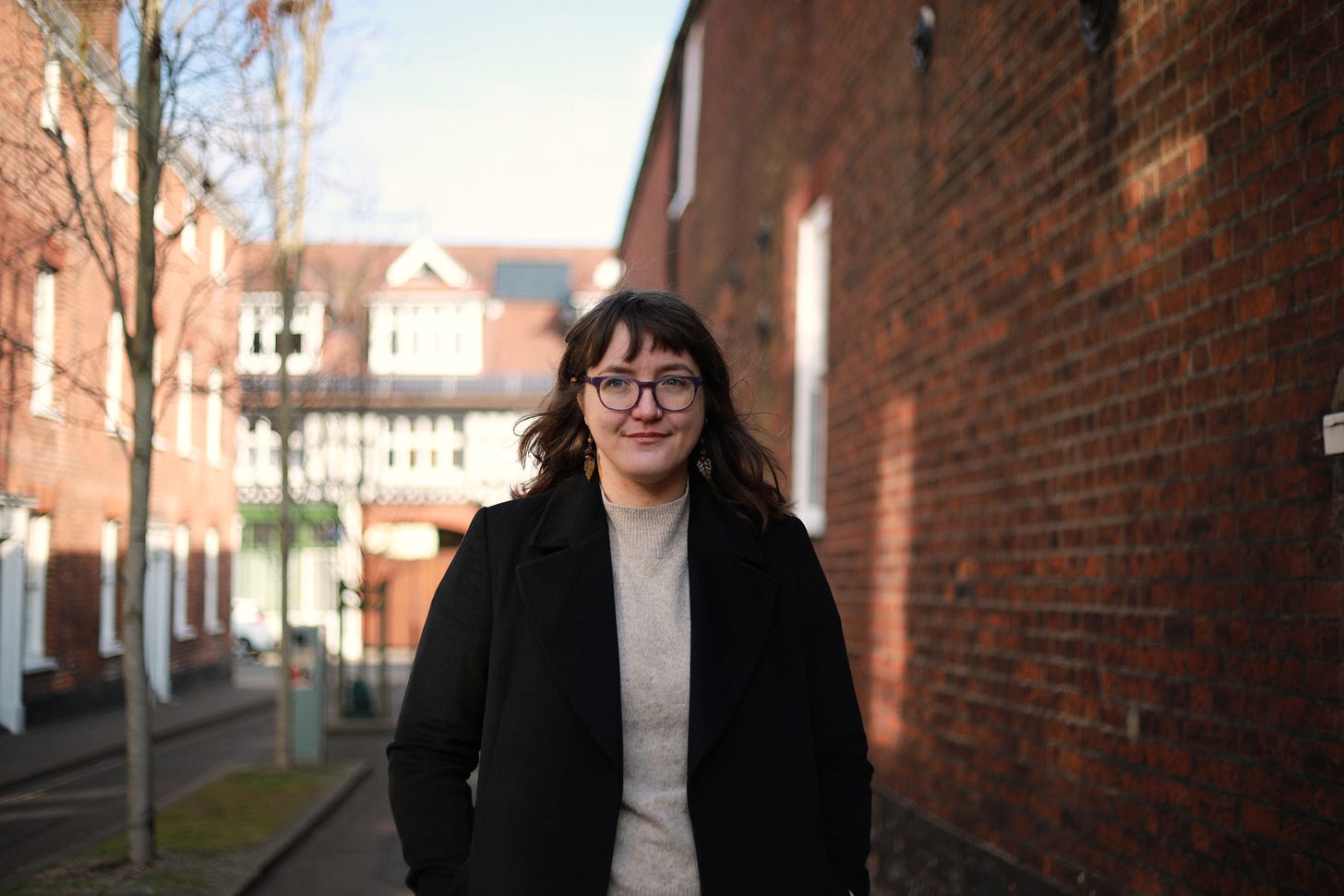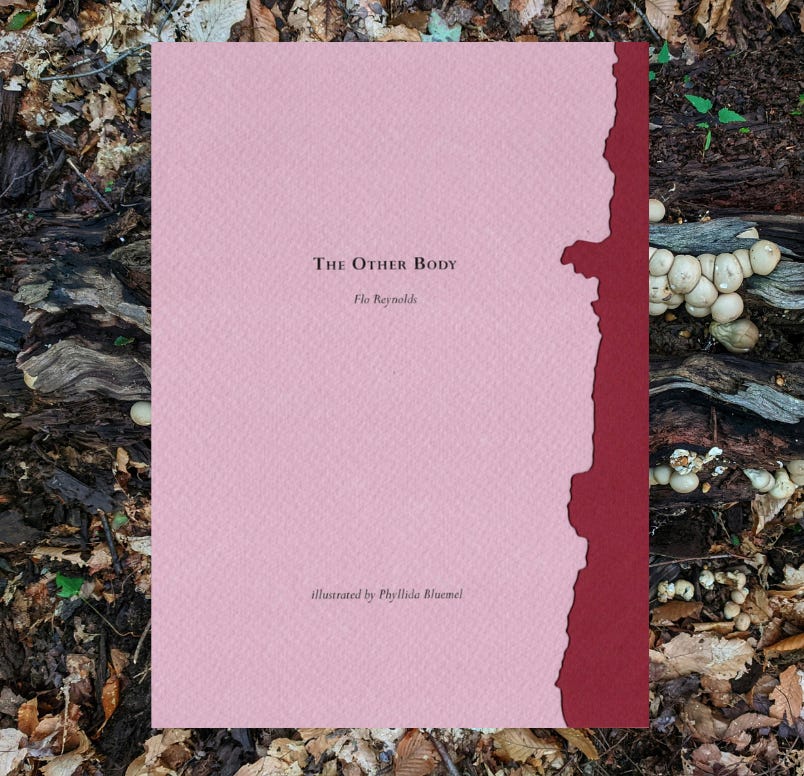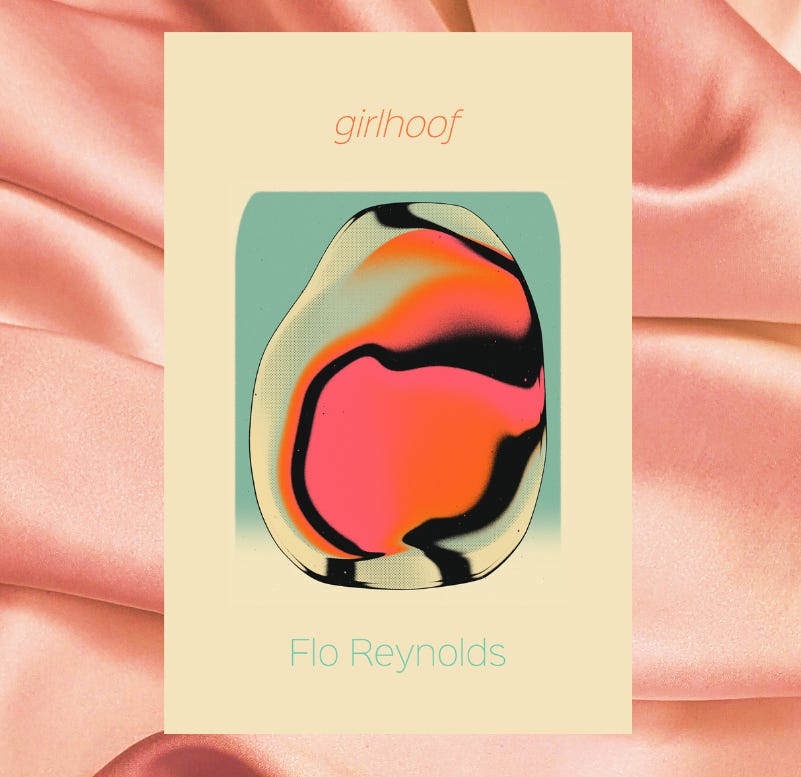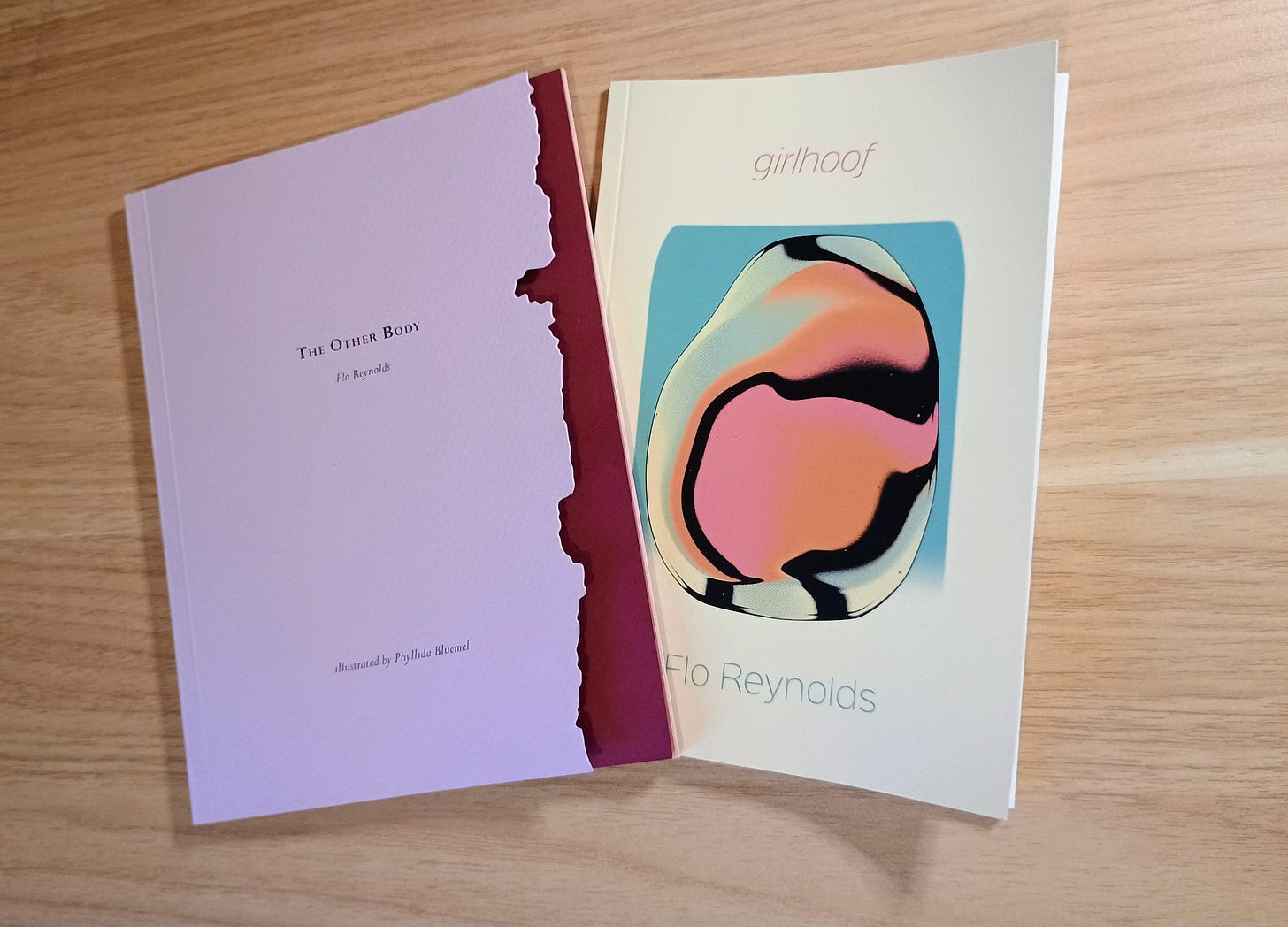When there's no one else to talk to, writing is there.
Flo Reynolds' (neurodivergent) notes on writing
Hello,
I absolutely love this interview with Flo Reynolds, it’s such a delight. Flo’s work is experimental, varied and explores different media and they came to writing through literature being a special interest which is a really interesting entry point that I haven’t spoken to anyone about before. Flo points out the importance of playfulness and making the work you want to make above all, because ultimately you’re in a relationship with you and your art: “Even if no one else gets it, this is a lifelong conversation you're in, hopefully.”
There’s something really important that Flo draws out around accessibility too which is that access in publishing isn’t just about authors - it’s about all book workers. There’s lots of ND people working in publishing in all areas (and if you are an ND book worker who’d be up for an interview, do get in touch I’d love to speak with you!). As Flo says, “I would love to see 360 degree access in all literature operations.”
Speaking of access, it’s just over two weeks until the online neurodivergent writers showcase with me, Callie Kazumi (author of Cuckoo) and Lucy Rose (author of The Lamb) happening on 25th June! It’s really important for me to do online events as my debut novel, These Mortal Bodies, comes out because I know so much online access has been lost since lockdown. You can book tickets here, including discounts on our books when you buy them together. Come along to support ND debuts and hear us talk about writing process and craft.
There’s some more fab interviews coming up with Marcia Hutchinson and Camilla Pang - if you enjoy the Substack, please do tell your friends and share with others as it really helps promote the work of ND writers.
I’ll be back next week with another interview x
Hey Flo! Tell us a bit about you and your work.
Hello! I'm a poet and writer based in Norwich. I've written three books of poetry: peel me Watcher, which comes out later this year, girlhoof (Salo, 2024) and the other body (Guillemot, 2021). I also write fiction and non-fiction, and in recent years I've been exploring documentary methods across all these forms, in part to help me write about the climate and biodiversity crises. I've recently returned to facilitating writing workshops in the community and online, and I'm really loving sharing documentary writing with my students right now.
Does being neurodivergent impact your creative process? And if so how?
I think in many ways it is fundamental to my creativity. In my late teens all things literature became a special interest, and that has never gone away. There are probably as many ways to fall in love with writing as there are writers, but perhaps a special interest is a very intense version. For me, writing is like my best, closest friend. So although my creative process differs from project to project depending on what form and ideas I'm exploring at the time, it always comes out of this foundational, defining friendship.
It's not all roses, I hasten to add. Fatigue makes me work more slowly than I'd like, and I find public speaking very draining. It's an ongoing process to work out which accommodations I need to make this aspect of a writer's work more comfortable.
Is neurodiversity a theme in your work?
Yes, definitely and deliberately. In my first book of poems, the other body, I was exploring it in its fullest sense: the whole range of different consciousnesses in the world. For me this includes non-human creatures, who are just as much people as humans are – we simply have different brains, bodies, and communication styles. I wanted to write poems that staged interactions between different people, species, neurotypes in all their delightful chaos, their neuroqueerness.
My latest book, peel me Watcher, is told from the perspective of a neurodivergent character who interacts with a work of art in a gallery. In the poem they try a range of subject positions and modes of address to try and triangulate what exactly is happening in the dynamic between viewer and artefact. To do this I wrote the poem in a very experimental way: it's unstable in tone, it doesn't take a logical order, it plays with sound just for the enjoyment of it, the speaker's accent changes, it looks weird, it's just too much – you could say that it's a kind of autistic speech, written down. I'm interested to see what readers will make of it.
My next project is a novel and takes a different tack, but I'm sure I'll return to neurodiversity as a theme in future. There is so much more to be written from the variety of our lived experiences.
What's one piece of advice would you give to aspiring neurodivergent writers out there?
There are actually two things I wish someone had told me when I was starting out and I often still need to hear them.
Number one is that writing is slow. Don't let the myths about child prodigy savant-writers get in your way. Give it time and allow your writing to mature.
Secondly, you don't have to write about being neurodivergent; you can write anything. If you do want to write about it, you don't have to do it in any particular way. You don't have to represent anyone, not even yourself. You can make stuff up! Let loose. Even if no one else gets it, this is a lifelong conversation you're in, hopefully. When there's no one else to talk to, writing is there.
Is there a book (or other kind of art) by a neurodivergent artist that you love and you'd like to draw our attention to?
Sascha A. Akhtar has been a mentor and friend to me and her poetry collection The Grimoire of Grimalkin was recently reissued by Prototype. It is fantastic that readers can get hold of this book again! It was a life-changing, paradigm-shifting book for me when I first read it, and its full significance in contemporary poetry is only just beginning to be fully recognised. Read it and weep at the artistry, the brilliance.
What’s one thing the publishing industry could do to make things better and more accessible for neurodivergent writers?
Clarity of communication would be top of the list, but I'd also like for everyone in the industry to remember that neurodivergent people are people, we're everywhere, and access is important for all book workers.
We're not just young emerging writers on your front list. We're mid-career and established writers, and we're middle-aged and older writers of all career stages, too. And we're in your production and editorial and marketing departments.
At any given literature event, yes, we're in the audience, yes, we're on the stage, but we're also in the publicity and programming teams who organised it. We're the runner restocking the green room and doing the roving mic, and the chairperson and the bookseller. I would love to see 360 degree access in all literature operations.
And lastly, how can readers of the newsletter support your work?
You can subscribe to my Substack, Read Write Grow, where I share insights into learning to write in a new genre and how writing can support other parts of our lives. My books are available from Guillemot Press and Salo Press, and you can try some of my poems before you buy over on my website.







